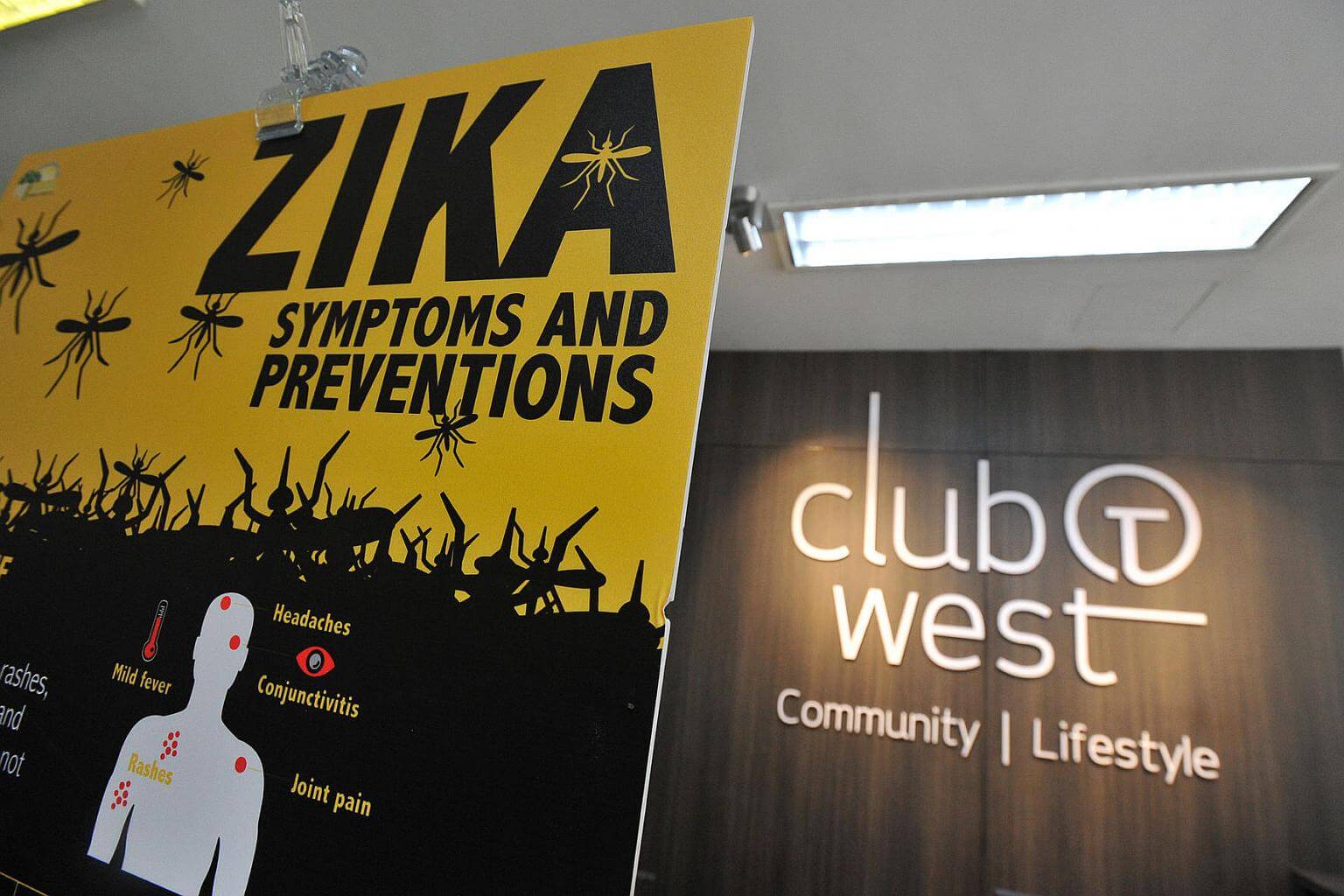Zika virus strain here may not be from Brazil
Experts call news encouraging as it could mean less danger for unborn babies; dip in new infections yesterday
Sign up now: Get ST's newsletters delivered to your inbox

Zika poster at Tampines West Community Centre on Sept 3, 2016.
ST PHOTO: LIM YAOHUI
The Zika virus behind an outbreak in Singapore likely evolved from a strain which was already circulating in South-east Asia, scientists here have found out.
This means that it was probably not imported from South America, where Zika has been linked with microcephaly - a serious condition which affects unborn children.
The Ministry of Health (MOH) yesterday revealed 26 more people came down with Zika. This was the first dip in new infections since Aug 29, bringing the total to 215 cases. Last Friday, the number of new infections was 38.
While it is too early to say if the outbreak has turned a corner, experts welcomed the news but still stressed the need to continue eliminating the Aedes mosquito, which spreads the Zika virus.
Yesterday marked the start of an ongoing community effort islandwide -involving around 50 areas, including Bedok and Whampoa - aimed at encouraging residents to take steps to prevent mosquito breeding in their homes.
Deputy Prime Minister Teo Chee Hean, one of several ministers and MPs who took part in the community effort, said Singaporeans should try to continue with life as normally as possible despite Zika now being locally transmitted here.
An infection leads to only mild symptoms, such as a rash and aches, in most people.
While expectant mothers have to take precautions against the virus, he pointed out that in pregnancy, there are also many other risks involved. "If we can manage those risks for the individual, that's the most important thing," he said.
Environment and Water Resources Minister Masagos Zulkifli yesterday highlighted that the World Health Organisation on Friday described Singapore's efforts against Zika as an example for other countries to follow.
He said that this has affirmed Singapore's "promptness and transparency in the Zika episode".
"I think that is important because that is part of being a responsible country," he added.
There have been about 1.5 million reported Zika cases in Brazil. But while the virus there has been linked with microcephaly, nine in 10 of such cases occurred in the north-eastern part of the country.
Experts are exploring whether other environmental, socioeconomic or biological factors could be at play, according to a news article in the research journal Nature.
In its update yesterday, MOH said the National Public Health Laboratory has worked with A*Star's Bioinformatics Institute to complete the sequencing of the Zika virus found in two patients from the first cluster in Aljunied Crescent/Sims Drive. The analysis found that the virus belongs to the Asian lineage and likely evolved from the strain already circulating in this region. The virus from these two patients was not imported from South America. The research team will release more details shortly, the update added.
Experts say that the news is encouraging. Dr Leong Hoe Nam, an infectious diseases specialist from Mount Elizabeth Novena Hospital, said: "I need to look at the data more closely. But given that it's distanced from the Brazil virus, then certainly the likelihood of microcephaly here will be more distant."
Infectious diseases specialist Paul Tambyah said Zika, which was found in this region as early as in the 1960s, could have been circulating in South-east Asia for decades.
This means that many people in the region could already have developed some sort of immunity.
SEE TOP OF THE NEWS


